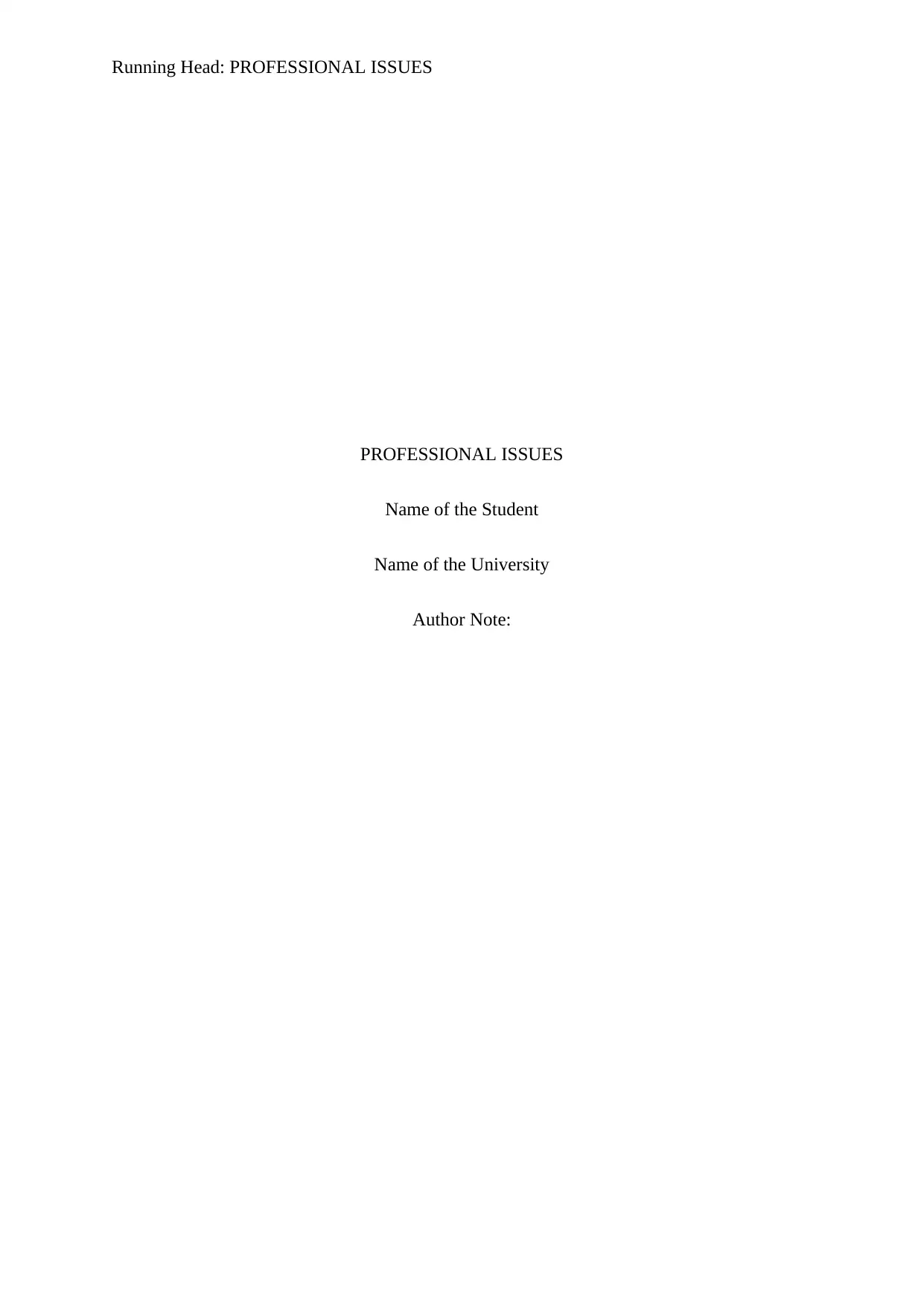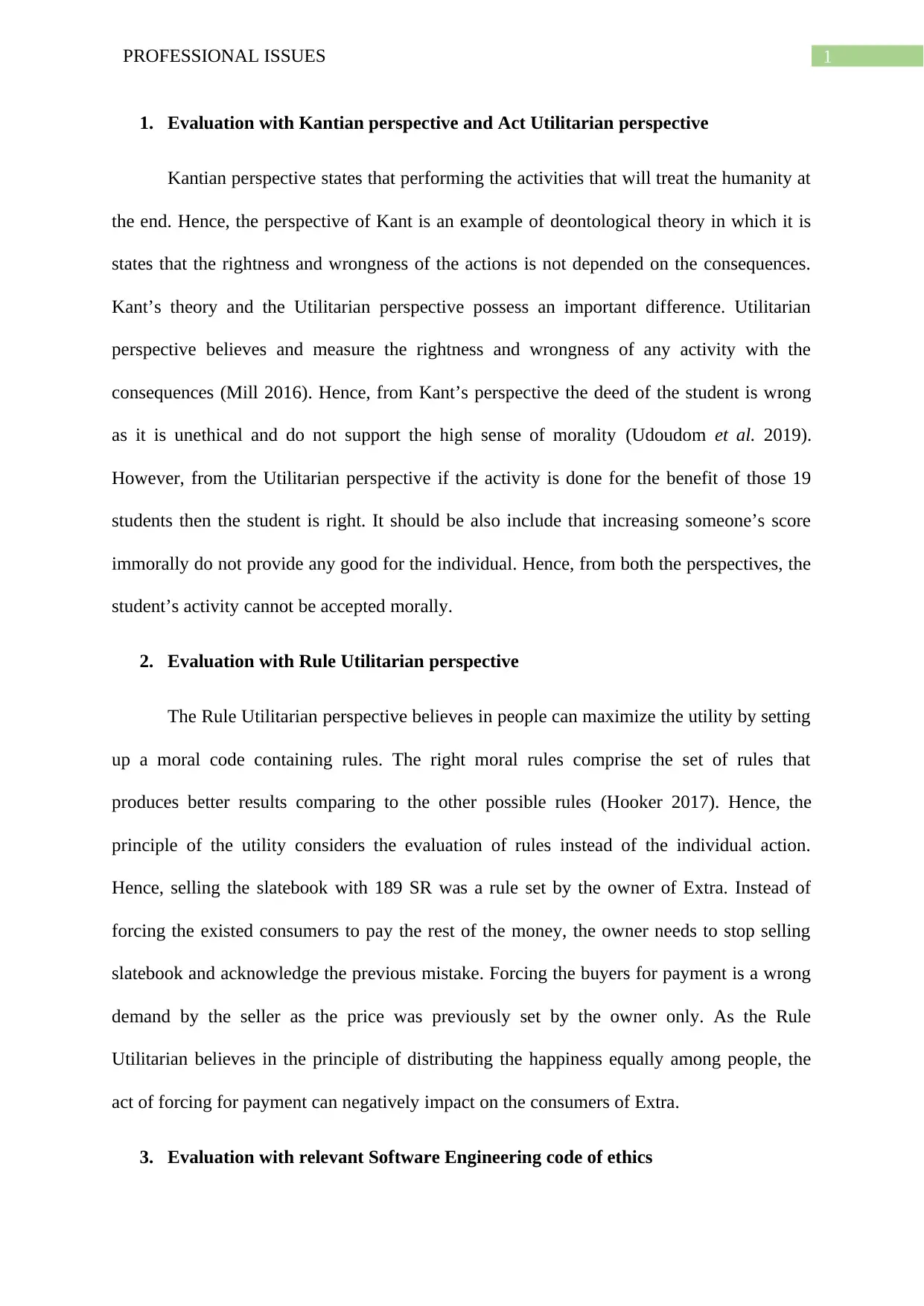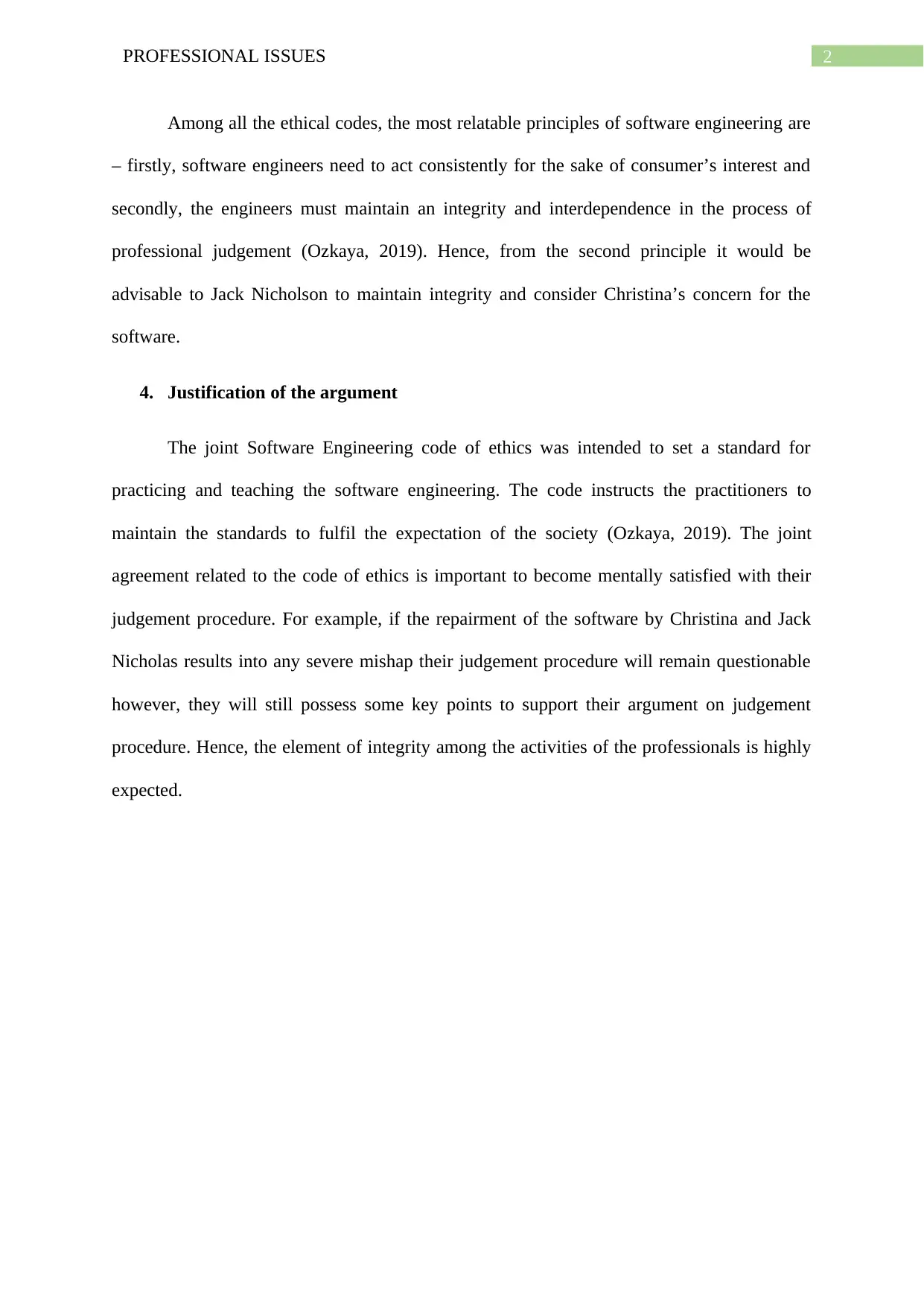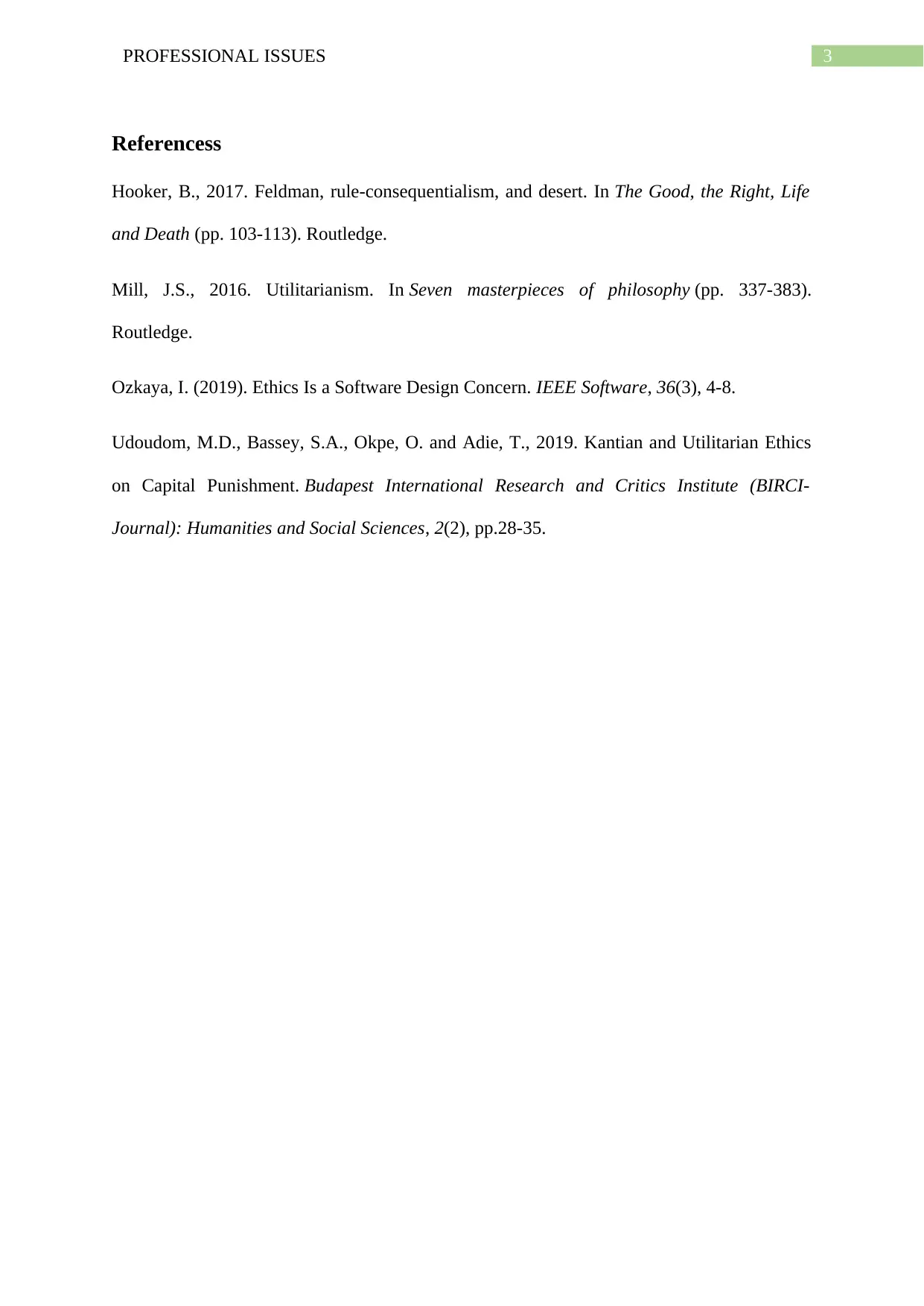College of Computing IT407 Assignment 3: Professional Issues Report
VerifiedAdded on 2022/09/07
|4
|716
|19
Report
AI Summary
This report addresses professional issues within the context of IT407, focusing on ethical evaluations from various perspectives. The student analyzes scenarios through Kantian and Act Utilitarian viewpoints, highlighting the differences in their approaches to morality and consequences. The report also incorporates Rule Utilitarian perspectives, examining how ethical rules can maximize overall utility. Furthermore, the analysis includes relevant software engineering codes of ethics, emphasizing the importance of integrity and consumer interest. The student justifies the arguments by referencing the joint Software Engineering code of ethics and its significance in professional judgment. The report utilizes references to support its arguments and provide context for the ethical frameworks discussed. The assignment is a solution to a problem set by the College of Computing and Informatics, and explores topics such as the ethical implications of a student's action of increasing the score of others, and the ethical implications of a seller forcing buyers to pay for a slatebook. The report provides a comprehensive overview of ethical considerations in the professional field.
1 out of 4










![[object Object]](/_next/static/media/star-bottom.7253800d.svg)